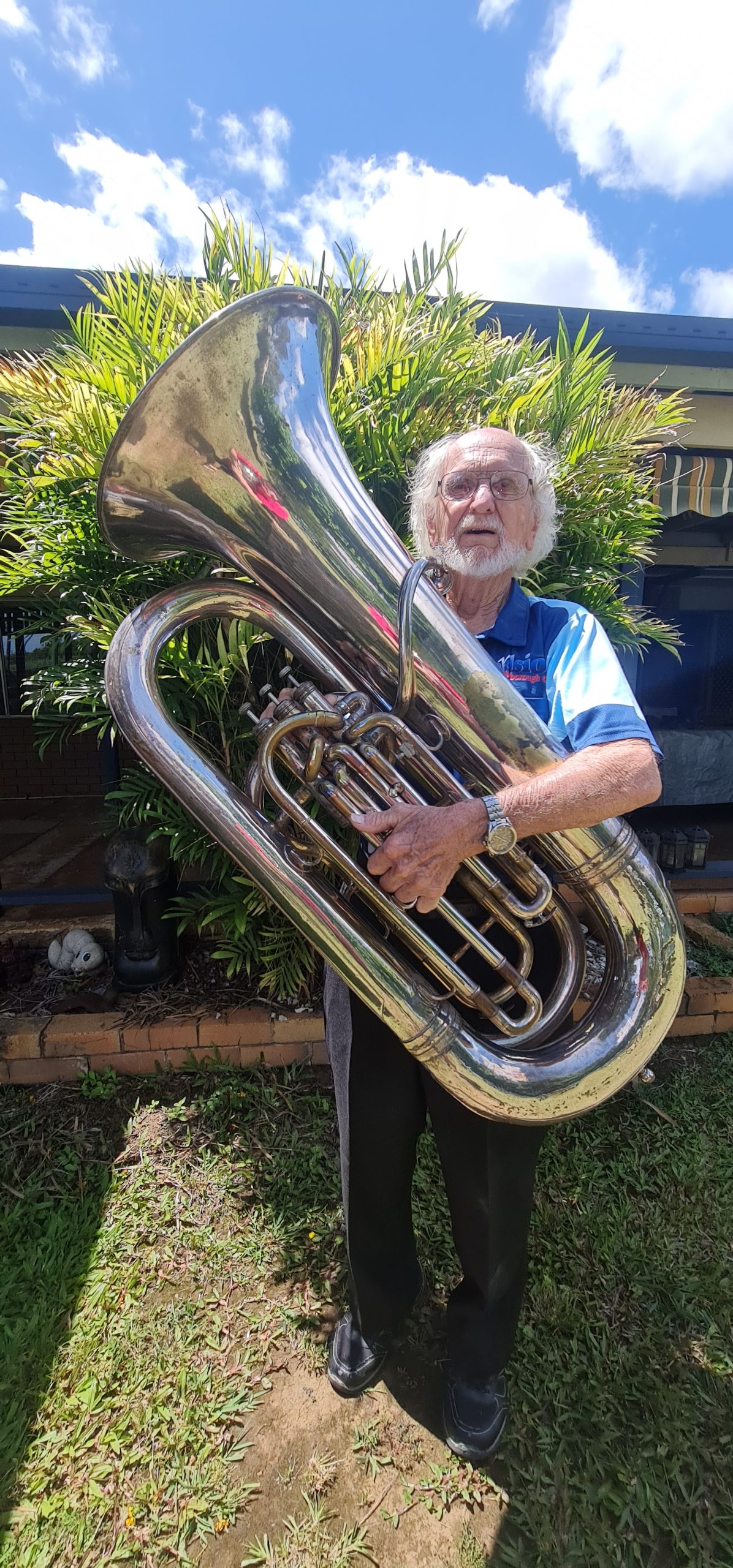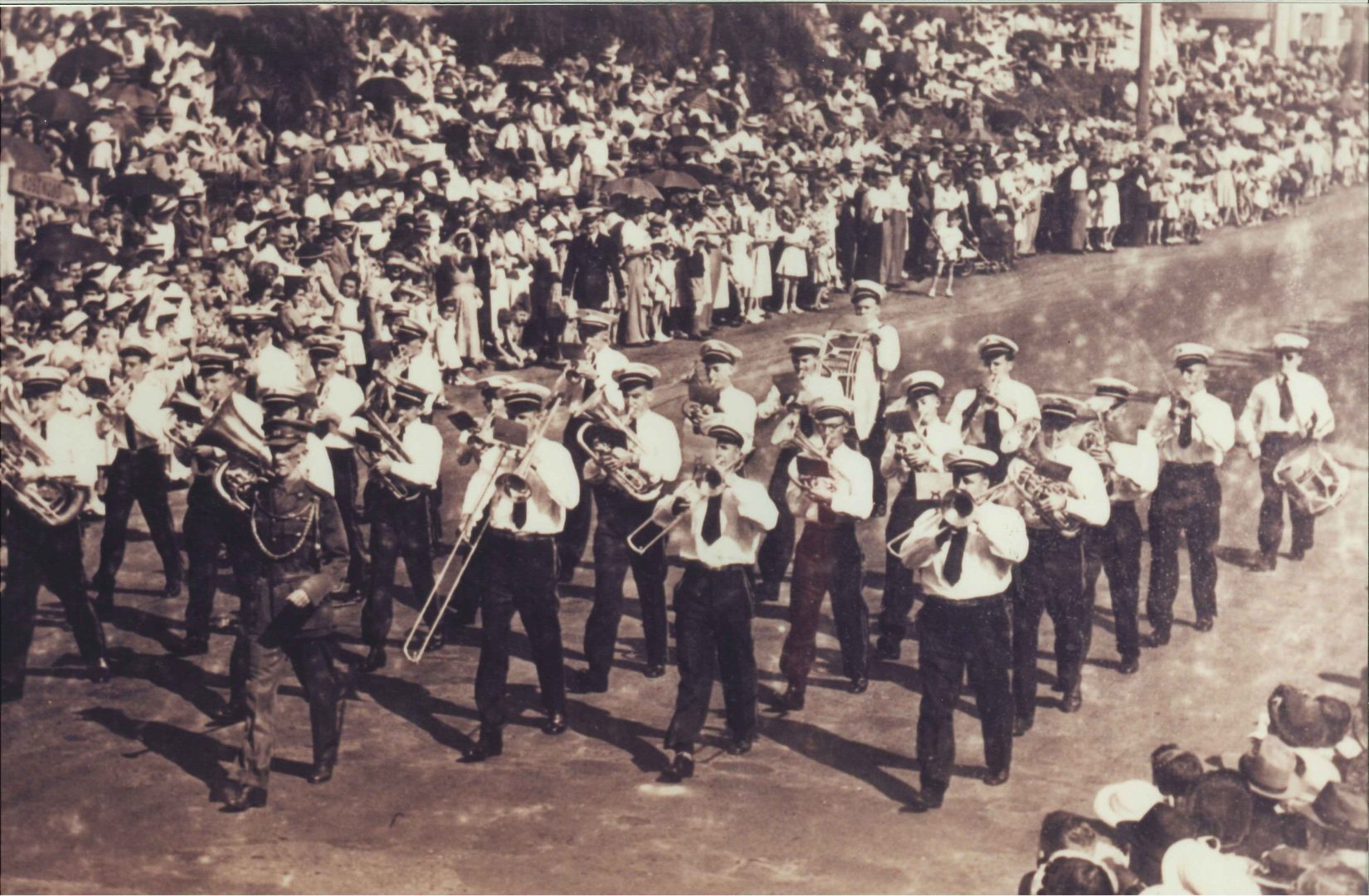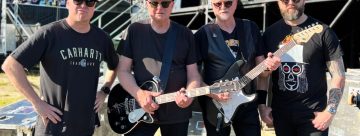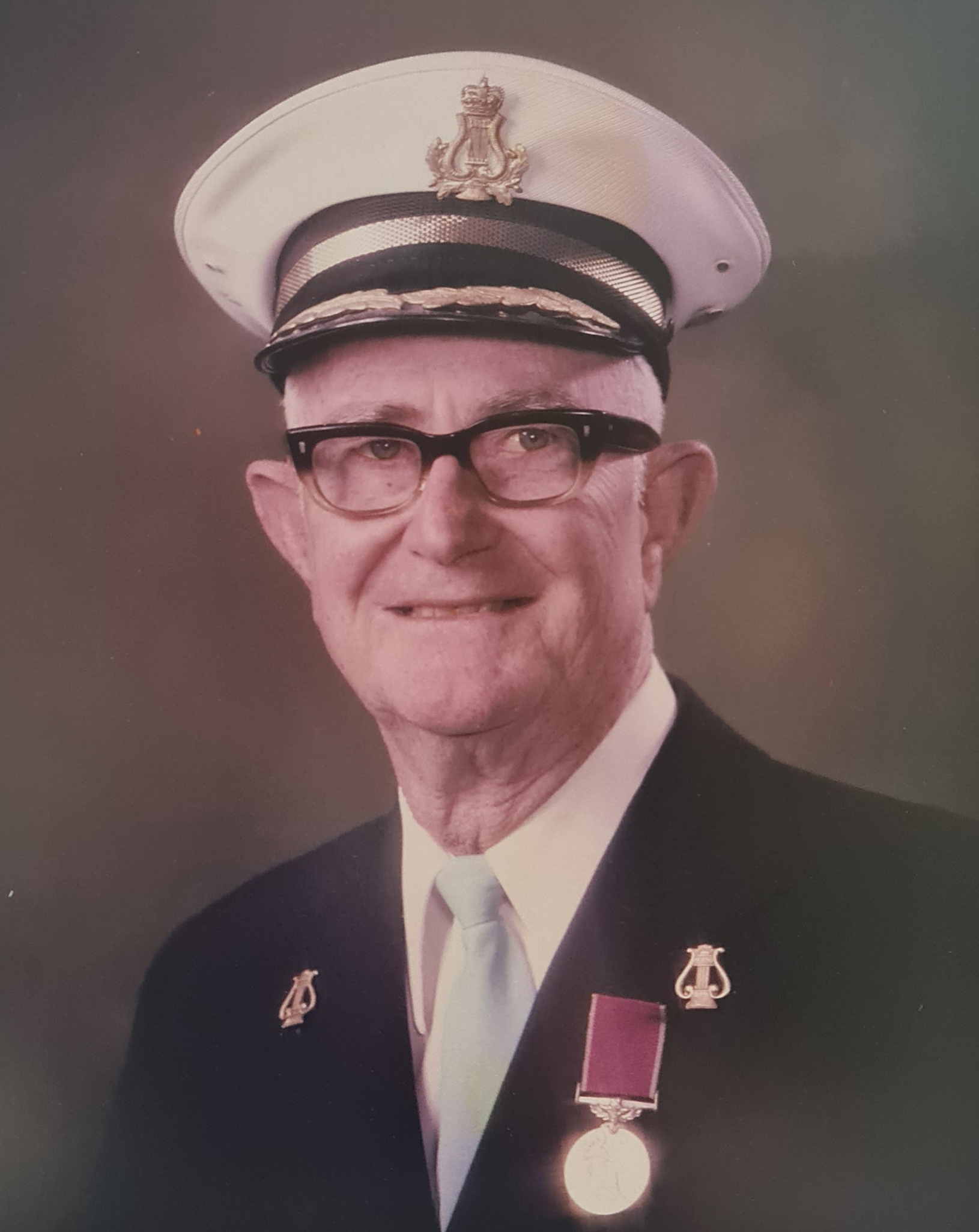
The following article follows on from last month’s story about local musician Mel Neilsen and his lifetime of music with the Maryborough Excelsior City Band and all the other names that the band has been known by. This story was written by the late Alex Connors, a previous conductor and mentor to many, about a tuba named Bertha and the men who played her.
The article has been written as it appeared at the time of the original writing. I have not corrected any grammatical errors or punctuation, as it is not my right to do so.
It is important to remember when reading the article that Alex Connors B.E.M wrote this article in the mid-1970s (by my deductions); Mel Neilsen has now had Bertha for about 72 years. So, Bertha turns 100 this month. Happy birthday Bertha! Kim Parnell, Editor, What’s On Fraser Coast.
Written by the late Alex Connors
This is the story of a remarkable instrument and the equally remarkable men who played her for practically all of her lifetime.
In the year 1923, when every self respecting country town had a Brass Band, the small township of Bauple boasted two. Bauple being conducted by the great composer and arranger of music for Band, Orchestra etc. and teacher of Piano, Violin, and in his day probably the most prolific and competent writer in Australia. His name was Charles Trussell.
The Rossendale Band was led by the late William Ryder, who came to Australia from England as Principal Solo Cornet of the famous “Besses o the Barn”, which claimed to be the finest in the world. It is small wonder that the area produced so many good players, including winners of Queensland, Australian and New Zealand Championships.
When new instruments were required for the Rossendale Band, a new BBᵇ Bass was ordered for a young player, who was showing great potential, his name was Maurice Connors (Mott).
The news duly arrived that the instrument was at the Railway Station and on receiving it, Mott set out post haste per horse and buggy, to claim it. An hour or so later, he returned in triumph, bearing the instrument on which so much history has been made and on which he himself was heading on such a successful career. From that day onward Mott worked diligently and constantly to improve in all aspects of his playing. Owing to the volume of air required to fill the large instrument, the length of tubing and pistons, it is much more difficult to play fast music with the same clarity that can be obtained on a smaller one, and writers always have that in mind when composing Solo’s for Bass, or arranging Band parts. However, Mott found it much more challenging and interesting to play Solo Cornet parts and in my many memories in a lifetime of Banding, I often recall with great pleasure the nights at home, where we would go out on the veranda and play for hours in the dark.
He would play the Solo Cornet parts of marches, such as Honest Toil, Ravenswood, Cossack etc., with the facility of a top class Cornet Player, while I only had to memorise my band parts.
Mott was undefeated in Queensland from 1929 to 1934 inclusive, he won in Sydney in 1935, toured New Zealand in 1936, where he returned in 1937, where he won four Solo’s straight including the National Championship. In 1939, on the outbreak of war, he joined the New Zealand Air Force and went through the war years as a member of the Band, which toured Australia in 1946.
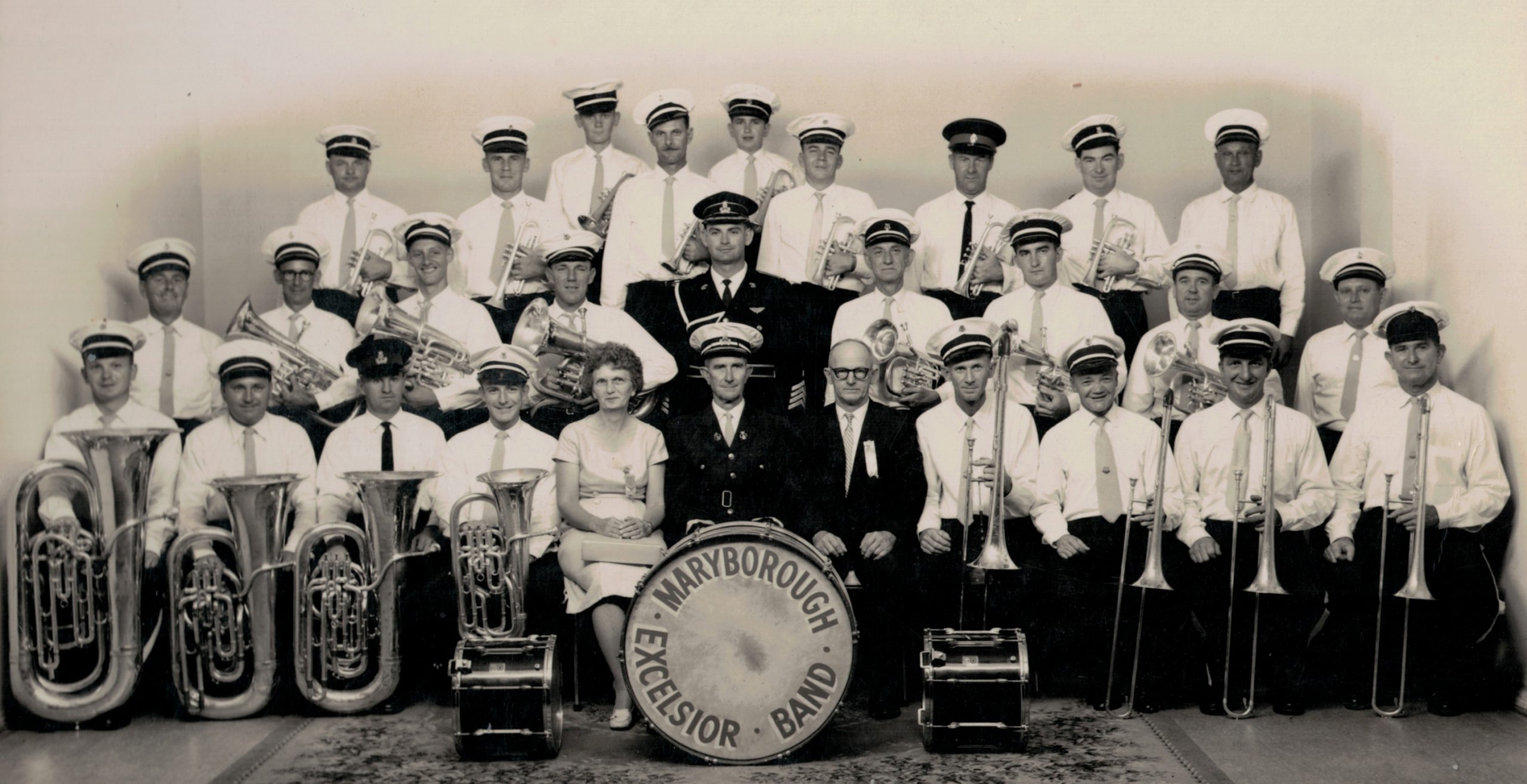
At the end of hostilities he joined the New Zealand Symphony Orchestra, a position he held till retirement in 1970. His career in the Brass Band had been curtailed to a great extent through the war and his full time duty with the Orchestra, but he had already shown that the most difficult Solo’s could be mastered on the Bass, as evidenced by winning on Solo’s such as Warick Williams Air Varie, Jenny Jones, Rule Britannia etc. When it is considered that he had not learned to read music until the age of nineteen, when he started to play and that for the last thirty-one years of his playing life he was unable to compete, the fact that he had so many Championships including Queensland, Australian, New South Wales and New Zealand Championships, would be sufficient proof of his extraordinary ability.
In 1950, a small boy applied to become a member of the Excelsior and Boys Band, which I had taken over some time before. His name was Mel Neilsen and after a try out on a smaller instrument, I was greatly impressed by his extraordinary lung power and his willingness to learn. I thought he was rather small at that stage, to play the biggest instrument in the Band, but on suggesting it, gladly accepted.
The Bauple Band went out of existence in the late thirties and had sold some of the instruments, including Bertha, to the Excelsior and Boys Band, and so the instrument that Mott had learned to play on was passed down to Mel. When Mel learned of the deeds of his predecessor, he made up his mind that he would emulate him in playing the hardest Solo’s. To say that he succeeded beyond his wildest dreams, would probably be an understatement.
Mel’s record is so outstanding that it would take volumes to record it all, but, as the winner of more titles than anyone in the history of Banding in Queensland, and surely Australia.
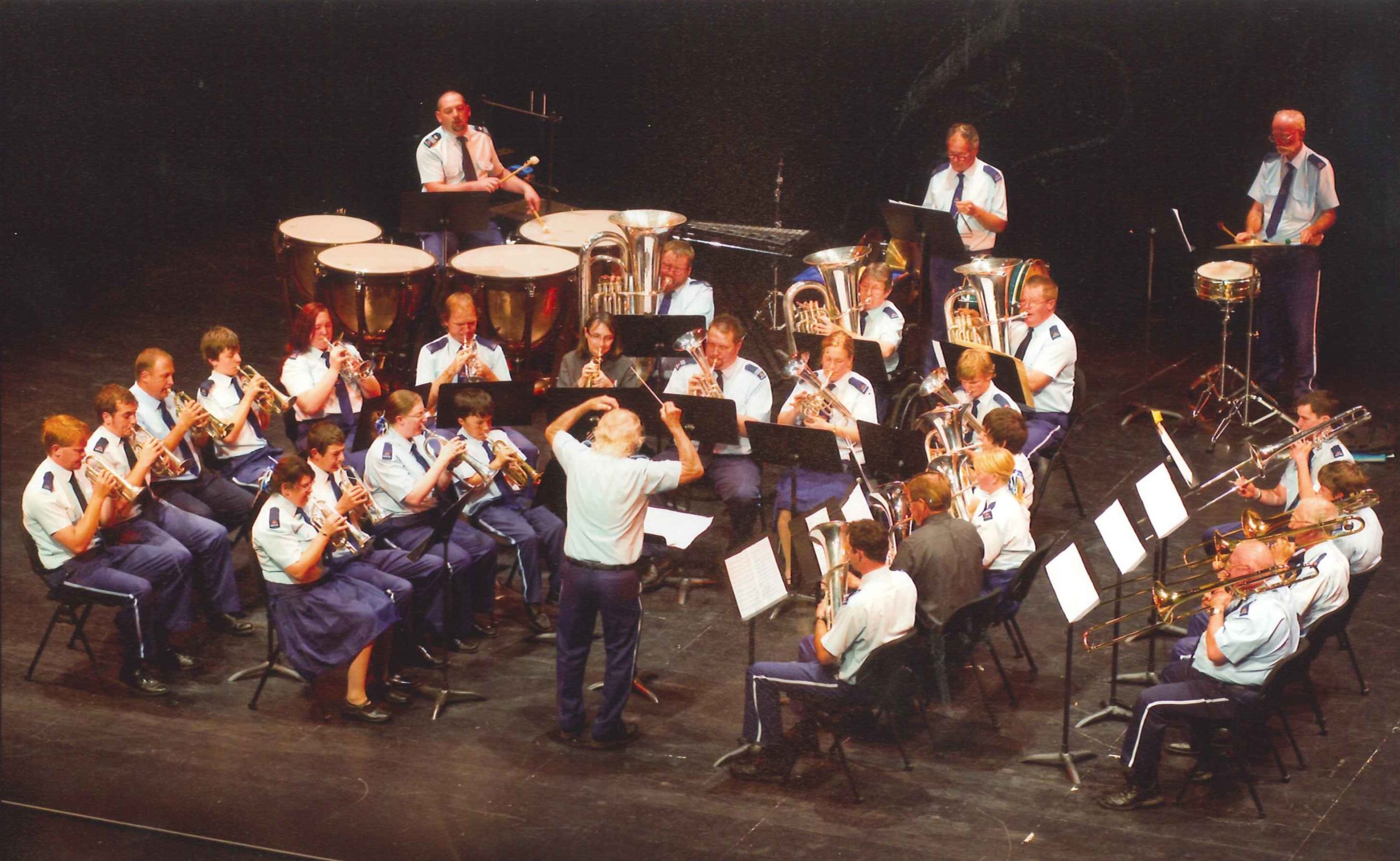
He has won in the four states in Australia in which he played, besides winning in New Zealand, he has won numerous Sacred and Open Competitions and last but not least, the prestigious Ern Keller Memorial Trophy, open to the Champions of every Australian State and New Zealand. Perhaps the most remarkable thing of all, is that these feats were all accomplished on Bertha, who has travelled with him wherever he has gone, for thirty-seven years, including three times to New Zealand.
Mel has been playing Bertha for thirty-seven years and it was twenty-seven years old when he got it, so it is surprising that owing to its age and the tremendous amount of work it has performed, some of the metal has worn so thin, but I am sure Mel could still win on it.
Mott is living in Trentham, New Zealand, and at 84 years of age, he has given away playing. He has a Tuba, which he used in the Orchestra, which he is arranging to send to over to Mel. As one who has been associated with both the players and the instrument, I think it is fitting that this should take place and that these players whose respect for one another is mutual, should share the same two instruments, on which so much music has been performed.
BERTHA – by Alex Conners
If ever you are asked to name great players you have known
And how you would compare them for ability and tone
No matter what your answer is or what your point of view
It would be hard to find someone, who would agree with you.
To win a competition, you have to beat the rest
And the instrument you’re using, must be nothing but the best
And while opinions differ in regard to someones style
But when it comes to instruments Bertha wins it by a mile.
The man that she was bought for, Was the greatest in his day
And Bertha was the instrument on which he learned to play
For thirty-seven years, the second, has had it in his care
And I’m sure it has a record, unequalled anywhere.
And so as these fine players who have won such wide acclaim
Both started out on Bertha, upon their road to fame
For it was on this instrument they both made their reputation
I think it might be partly due to Bertha’s inspiration.
